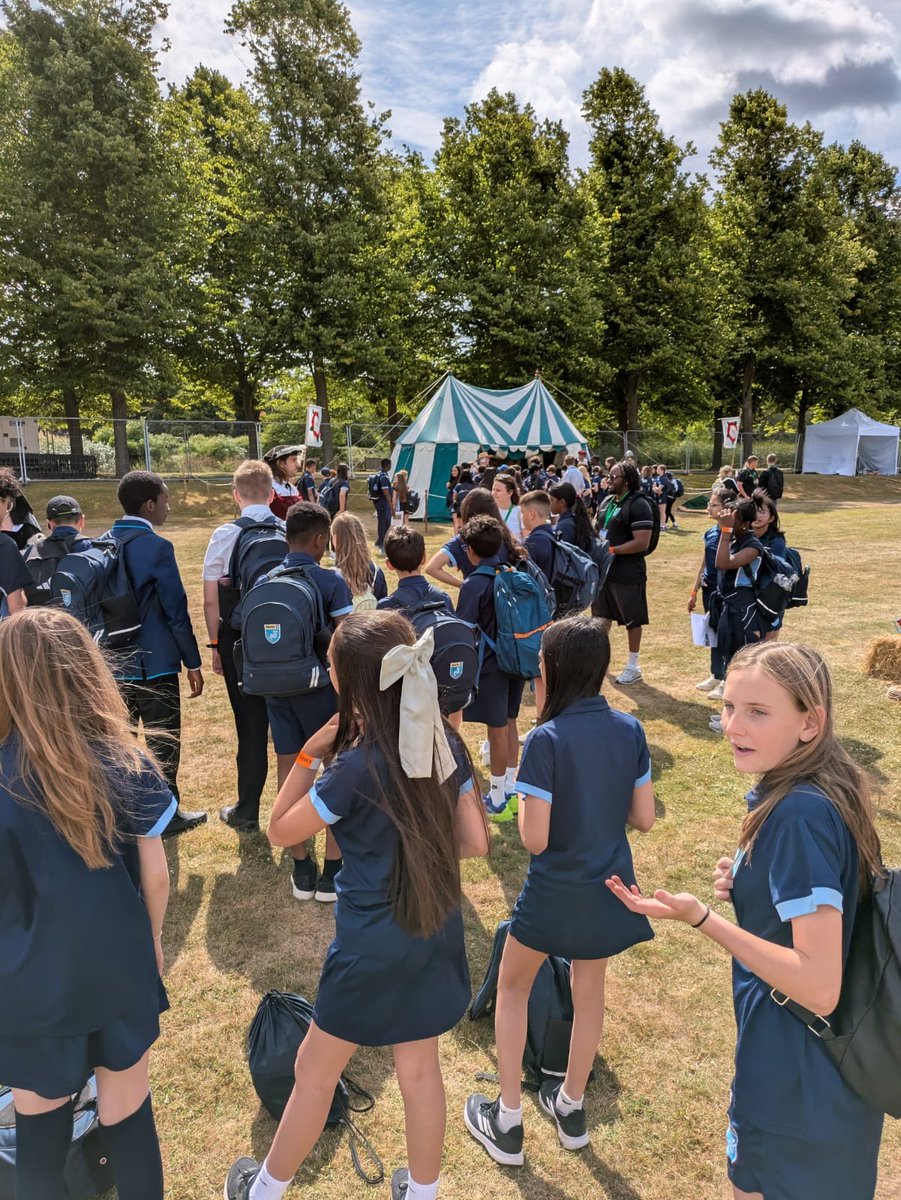
08/07/25
We are looking forward to welcoming our prospective parents and carers to our Open Evening. 📌Important Notice for Current Parents/Carers: To support preparations for the evening: 🔷Students will be dismissed on Thursday at 12.45 🔷The school day will begin at 10.30 am on Friday https://t.co/4FhrLhip13
follow us @HarrisSutton1

08/07/25
We were thrilled to welcome yesterday a performance of Around The World in 80 Days! This dynamic and engaging show gave our Drama students a fantastic opportunity to experience the magic of live theatre up close. A huge thank you to the performers! 👏🎭#HASUDrama #LiveTheatre pic.twitter.com/ihLyHaKb7B
follow us @HarrisSutton1

01/07/25
🎉Join us for the HASU Open Evening on 10th July, 4pm-7 pm! Discover what makes HASU special, meet our amazing team, and explore all the opportunities waiting for you. 🎟️Book your tickets now👇https://t.co/S4pwe6qzA0 See you there!#HASUOpenEvening #JoinUs #FutureStartsHere pic.twitter.com/A0L3QPLS4E
follow us @HarrisSutton1
30/06/25
Good luck to our incredible Year 11s! Whether you're heading into sixth form, college, apprenticeships or something entirely new! Your journey is just beginning, and we know you'll continue to do amazing things. Go out there and make your mark!#Year11 #schoolleavers #HASUlife pic.twitter.com/jF2AQDFHxW
follow us @HarrisSutton1

30/06/25
🎓This morning we welcomed our Year 11s for their last ever assembly at HASU. We’re so proud of how far they’ve come and we can’t wait to see them shine one more time at Prom this evening!#HASUClassOf2025 #Year11 #LastAssembly #PromNight #MemoriesMade pic.twitter.com/8QT6JiH6wD
follow us @HarrisSutton1

27/06/25
HASU at the UK Championships @FTC_UK 2025 @HarrisSutton1 @HarrisFed @REVrobotics thank you to all of our sponsors and supporters who helped up get here. @mandm @theautomateuk 2026 season here we come! Watch this space! #motethanrobotsuk pic.twitter.com/yFXbE7twNJ
follow us @HarrisSutton1

26/06/25
🤖Our amazing @HASUrobotics team left for the Nationals at iconic CopperBoxArena. They'll be competing alongside 64 top teams from across the UK in the world's largest student robotics movement. Good luck! We are all cheering you on!#MoreThenRobots #HASU #hasulife #hasurobotics pic.twitter.com/BKHCd1x3u9
follow us @HarrisSutton1

23/06/25
Our Y7 students are stepping back in time today at the Tudor Festival @HamptonCourtPalace. They're soaking up history where kings and queens once walked. A truly unforgettable way to bring history lessons to life! 🏰 #tudorfestival #year7 #schooltrip #HASUlife pic.twitter.com/q5J29KwAvl
follow us @HarrisSutton1

20/06/25
Congratulations to @HarrisFed, who received the award for Trust Team of the Year – 10 schools or more. 🎉#TesAwards pic.twitter.com/qMdcdho3sU
follow us @HarrisSutton1

20/06/25
Congratulations to @HarrisFed, who received the award for Trust Team of the Year – 10 schools or more. 🎉#TesAwards pic.twitter.com/qMdcdho3sU
follow us @HarrisSutton1

20/06/25
HASU STEM @HarrisSutton1 @HarrisFed @FTC_UK at the @Tesforteachers #TesAwards congratulations to everyone who made it here tonight! Shortlist “Best Use Of Technology” #morethanrobotsuk #hasuroboticsrocks #HASUstem pic.twitter.com/lgnLo1xy5O
follow us @HarrisSutton1


19/06/25
🌟 Happy #ThankYouTeacher Day! To all our incredible HASU teachers, your dedication, compassion, and wisdom shape lives every day. You teach, you lead, you inspire. We see you, we appreciate you, we thank you!🩵🩷👩🏫👨🏫#HASU #ThankYou #ThankYouTeacher pic.twitter.com/QzjDlhis8B
follow us @HarrisSutton1

12/06/25
The scores are in! Congratulations UREY HOUSE! @HarrisSutton1 thank you all for coming down to support HASU Robotics at the Bake Sale today! @FTC_UK #morethanrobotsuk #houseweek pic.twitter.com/1OD8eCqg2w
follow us @HarrisSutton1

12/06/25
⚽️ Lunchtime just got competitive at HASU! Thanks to our new football tables, students and staff are going head-to-head in epic matches during breaks! ⚽️👏🌟 #TableFootball #schoollife #schoolspirit #studentvsstaff #HASUlife pic.twitter.com/BIuHcglK14
follow us @HarrisSutton1

12/06/25
📚 Our incredible librarians wrapped up the Year with a magical visit to the Harry Potter Studio Tour yesterday! A well deserved reward for their hard work. 👏 🌟📚#ThankYouLibrarians #HarryPotter #HarryPotterMagic #HASU #HASUrewards pic.twitter.com/5jEgakmRNZ
follow us @HarrisSutton1

11/06/25
Its house week at @HarrisSutton1 and the HASU Robotics Society are mixing up a treat for the school community. Don’t miss out on the house themed bake sale tomorrow. #morethanrobotsuk pic.twitter.com/xg44478Blc
follow us @HarrisSutton1

11/06/25
Well done to our 6 form students who competed yesterday at Federation Sports Day. A big shout out to Josh, who ran a PB to become Federation 200m Champion. Also to the boys 4x100m runners who comfortably took gold. Well done! 👏🌟 pic.twitter.com/PiO5884VcT
follow us @HarrisSutton1
11/06/25
🎉HASU House Week is in full swing! Get ready for Guess the Number, Nintendo Switch play time, Lollie Letters to friends, Dodgeball battles, and of course... DONUTS! 🍩🔥 Which House will take the crown this week? Let the games begin! 🏆💥 #HASUHouseWeek #HouseSpirit #GameOn pic.twitter.com/2AlQr98hSP
follow us @HarrisSutton1

04/06/25
The sun is out, smiles all round! @HarrisSutton1 HASU Robotics are proud to present our team kit sponsor for @FTC_UK INTO THE DEEP 2024 - 2025 SEASON! Thank you so much for your support @mandm ! We love it! See you all at the Copper Box Arena! #morethanrobotsuk #hasurobotics pic.twitter.com/YeVsXATWd4
follow us @HarrisSutton1


